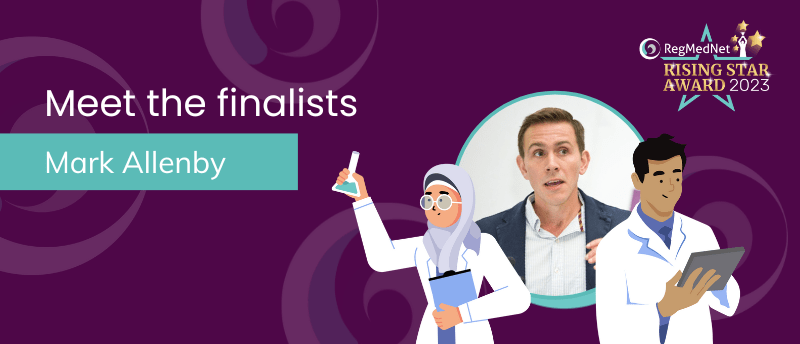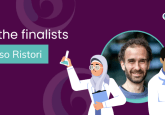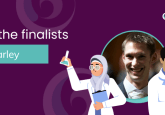Mark Allenby: RegMedNet Rising Star Award Finalist

We are pleased to announce that our judges have shortlisted three outstanding finalists for the RegMedNet Rising Star Award. Mark Allenby is a Senior Lecturer at The University of Queensland (Brisbane, Australia) working on data-driven tissue engineering. Mark’s research combines bioengineering, bioimage analysis and computational biology to understand regenerative manufacturing processes.
Read more about Mark’s career and contribution to the field .
Describe the main highlights of your regenerative medicine work
I lead the BioMimetic Systems Engineering Laboratory at the University of Queensland (Brisbane, Australia). We comprise 10 researchers combining tissue engineering, biomedical image analysis and computational biology to study and solve medical problems using biomimetic systems. Some favorite highlights in my regenerative medicine work include:
Bone marrow mimicry bioreactors for cell therapy manufacture
Biomanufactured cell therapies are expensive, requiring $100 thousand to $1 million per dose. These costs are 70-90% attributable to culture media. During my PhD, I created bioreactor technology able to predictably grow cell therapies to marrow-like densities (>109/mL), thus creating 10-fold and 100-fold reductions in medium and growth factor utilization. This work ultimately led to 20 publications, $1.5 million of funding and continues in my lab.
Engineered models of small blood vessels
Cardiovascular disease is the most common cause of death worldwide. To detect vascular disease, predict its progression and develop new interventional strategies we created personalized and bioengineered vascular models using image analysis, computational modeling and additive manufacturing. Collaborating with amazing clinicians, we’ve applied our protocols to intracranial aneurysms and femoropopliteal artery disease, leading to 14 publications and $1 million of funding through Ash, Sabrina, Chloe and Ryan in my lab.
How has your work impacted your laboratory, the regenerative medicine field and beyond?
Our models of vascular disease started in 2018, when we created the Cerebrovascular Engineering Research Group, recruiting images from hundreds of patients exhibiting intracranial aneurysms. From this dataset, we created best-in-class artificial intelligence and biomechanics simulation software to detect aneurysms and predict their rupture risk, whose clinical translation is supported by the RBW Hospital Foundation (Brisbane, Australia). We also additively manufactured cranial and peripheral vascular models to predict disease progression and evaluate surgical approaches, funded by industry, clinical and government partners.
Our high-density and marrow-mimetic platforms for cell therapy biomanufacturing are in early-stage development with the Australian Red Cross Lifeblood (Rebecca Griffiths; Melbourne, Australia), Queensland University of Technology (Maria Woodruff; Brisbane, Australia), and the Queensland Cord Blood Bank (Phillip Johnson; Brisbane, Australia). We’ve recruited several dozen patient donations to date, benefitting from Australian Research Council and philanthropic Ramaciotti Health investments and are validating new and vascularized marrow mimicry platforms using porous and hydrogel scaffolds.
Describe the most difficult challenge you have encountered in your scientific career and how you overcame it
My transition to become a group leader at the University of Queensland has been very rewarding, yet very difficult. As a young principal investigator, I am so recently aware of the challenges my postdoctoral and PhD researchers are experiencing. It’s taken time and effort to set up our research group, among considerable other commitments as a new professor (teaching, service, grants) and new father. I’ve had to learn how to take a step back, trust the (developmental) process and rely on the excellent capabilities of our team to help drive great research forward.
Overcoming this challenge was a team effort and I am so thankful to have found a fantastic team of postdoc and PhD leaders, specifically Ashley Murphy, who enabled us to succeed, together drafting nearly 50 operating procedures, risk assessments, ethics, and biosafety agreements. I have been so fortunate to have a team who is committed, collaborative, openly honest and welcoming. In addition, we have been supported by a fantastic greater regenerative medicine network at the University of Queensland, principally Justin Cooper-White, Simon Cool and Joy Wolfram, and from collaborators at local hospitals and industries.
I learned that it is critically important to recruit the strongest team possible, as early as possible.
Can you describe how you try to give back to the community/support a cause you feel passionate about? (i.e., describe your role in regenerative medicine focus groups, inter-disciplinary groups, internal workshops)
I have been elected and re-elected to the executive board of the Australasian Society of Biomaterials and Tissue Engineering (ASBTE; Melbourne, Australia), an International Union of Societies for Biomaterials Science and Engineering member society. I am the youngest executive board member and I have taken charge of early and mid-career researchers (EMCRs), chairing two major initiatives in addition to societal planning. I developed a mentorship program, which has grown in popularity to comprise 100 mentors and mentees by 2023, including a range of ages and diversity of industry and academic experiences, from distinguished professors mentoring associate professors to postdoctoral mentoring young PhDs. I also lead a series of half-day annual EMCR showcases across four regions of Australia and New Zealand, which has attracted over 300 attendees.
Including my executive activities in ASBTE as well as other university and external roles providing regular EMCR support seminars, panel discussions, and mentorship within my university and across Australia and New Zealand, I am deeply committed to supporting young researchers less than 5-10 years post-PhD, which is a critical turning point in career and personal development.
The decision is in your hands, so choose wisely! Have a browse of all the candidates, and make sure to cast your vote today.

